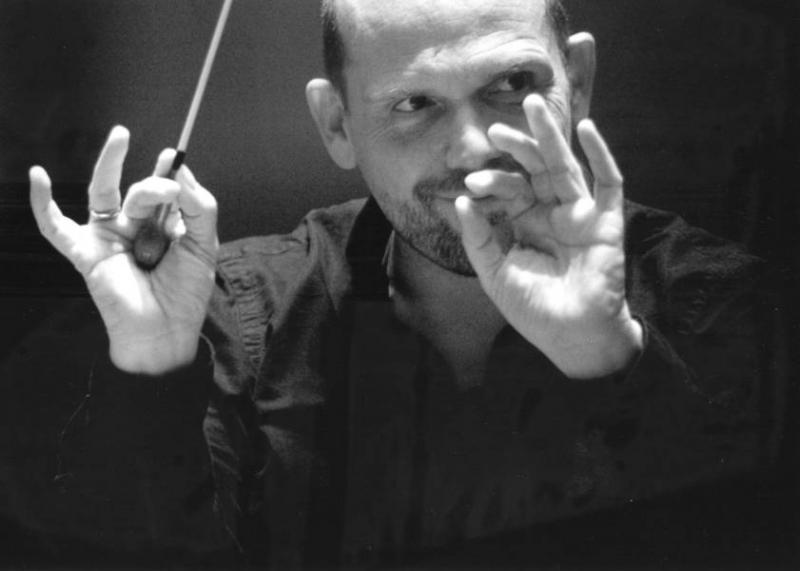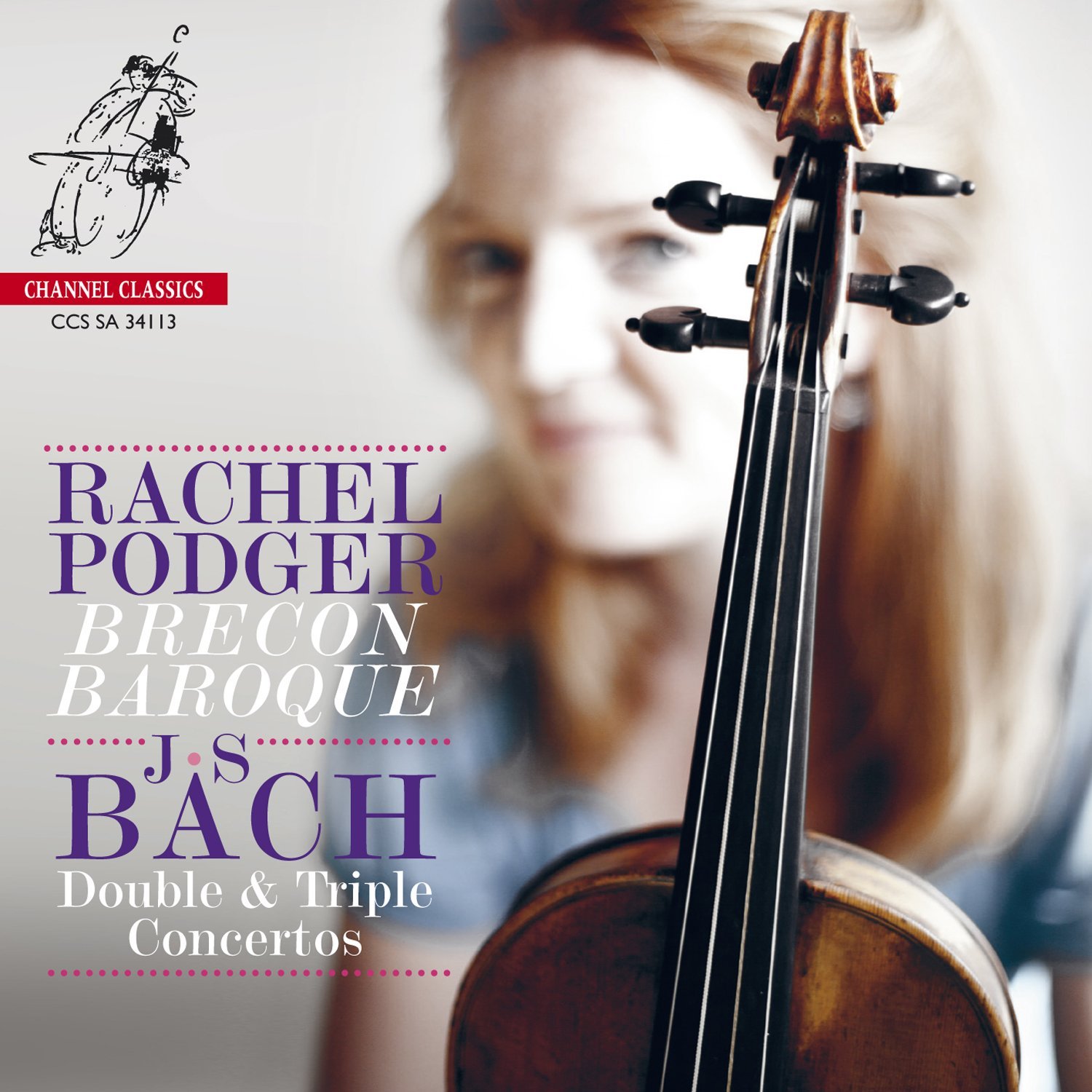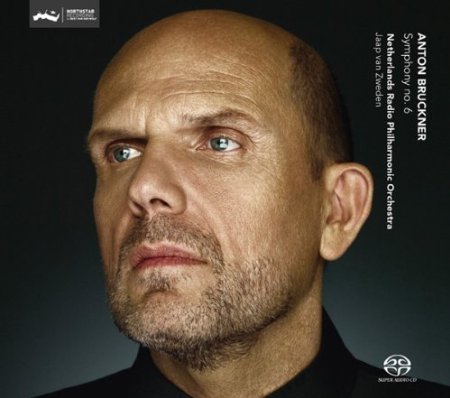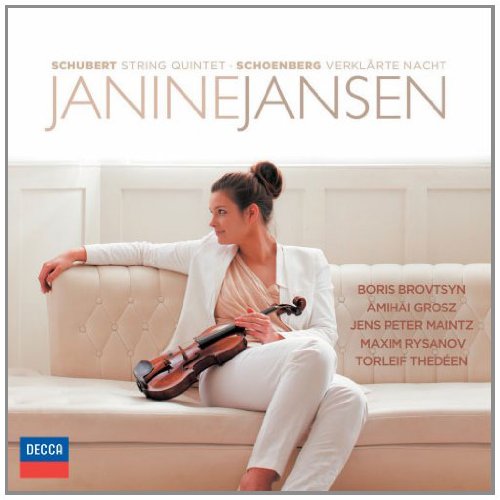Classical CDs Weekly: Bach, Bruckner, Schoenberg, Schubert | reviews, news & interviews
Classical CDs Weekly: Bach, Bruckner, Schoenberg, Schubert
Classical CDs Weekly: Bach, Bruckner, Schoenberg, Schubert
Bracing baroque violin concertos, a boisterous Austrian symphony and two Viennese works for strings


This is the most effervescent, zingy Bach Double Concerto I’ve heard. Close your eyes, don a pair of headphones, and listen to Rachel Podger and Bojan Čičić sparring with effortless, conversational fluency. As with all good period performances, there’s the sense of muddy varnish being stripped away. It’s always a joy when a performance of a familiar work finds new things to say. Buy this disc for the Double Concerto’s slow movement. The solo playing is predictably wondrous. Like me, you’ll be bowled over by Marcin Świątkiewicz’s harpsichord continuo, sending harp-like ripples through Brecon Baroque’s lean, vibrant textures – such a rare pleasure to hear this instrument so well recorded. Świątkiewicz is terrific too in the Triple Concerto; wise, authoritative and firmly grounded, while on top Podger and flautist Katy Bircher skitter around like naughty children.
The C minor concerto for oboe and violin is another success; Alexandra Bellamy’s oboe playing alternating between seductive liquidity and trumpety brilliance. And there’s an exuberant account of the Concerto for Three Violins, originally composed for three harpsichords, with Johannes Pramsohler joining Podger and Čičić. A life-enhancing disc, infused with terpsichorean joie de vivre. Nippy accompaniments too, from Podger’s own hand-picked chamber orchestra.

Bruckner for sceptics; no 6 is the only one of his mature symphonies that doesn’t open with an amorphous fug of non-sound. This one kicks off with a clearly defined rhythmic ostinato and gets into its stride within seconds. The melodies are as stark and bold as ever, but there’s a refreshing boldness and cheeriness about the piece – presumably in part due to the bright A major tonality. Jaap van Zweden paces the opening Majestoso beautifully, every transition handled deftly to avoid any sense of clunkiness. Novices need to sample the movement’s glorious coda, a succession of improbable modulations held together with taut rhythmic control and immaculate brass solos.
Van Zweden’s Netherlands Radio Philharmonic play exceptionally well; the massive brass eruptions never overwhelm and bass lines are cleanly defined. Listen to this disc several times and you’ll fall in love with this symphony. The horns in the Scherzo’s trio are magnificent, and the symphony’s concise, jubilant peroration blazes. Curious that Challenge Classics have chosen such a dour cover shot of Jaap van Zweden, the conductor bleakly gazing into the distance as if he’s abandoned all hope.

A disc to make the uninitiated fall in love with Schoenberg; a big-hearted performance of the original sextet version of Verklärte Nacht which manages to combine intense refinement with unabashed emotion. This is a piece which can make the unwary listener feel queasy. After 15 minutes of fin de siècle angst, endless unresolved cadences and tortuous chromatics, there’s a dazzling, shocking shift into bright D major. Which coincides with a pivotal moment in the Richard Dehmel poem which inspired Schoenberg to compose the work. Janine Jansen’s sextet manage the transition effortlessly, giving us a radiance which never tips over into treacly gloop. Remarkable music, even more so when you learn that it was written by a self-taught 25 year old. Schoenberg’s style was to change radically in subsequent years, and when listening to Verklärte Nacht you can understand why; it already sounds like a summation, an end point.
A good idea to couple the Schoenberg with Schubert’s vast C major String Quintet; another iconic Viennese work. It receives another compelling performance, and the massive scale barely registers. There’s a melancholy edge to so much of this music; only Schubert could write major key music which sounds so fragile. Jansen’s expansive Adagio is superb, as is a Scherzo which prefigures Bruckner. Best is the final movement, the second subject’s offbeat cello accompaniment delectably pointed. Is this the greatest piece of chamber music ever written? Throughout, there’s never the impression of a star soloist dutifully accompanied by subservient minions; understandable when you read that both works were recorded after a series of live performances. Wonderful, rich recording too.
Buy
Explore topics
Share this article
The future of Arts Journalism
You can stop theartsdesk.com closing!
We urgently need financing to survive. Our fundraising drive has thus far raised £49,000 but we need to reach £100,000 or we will be forced to close. Please contribute here: https://gofund.me/c3f6033d
And if you can forward this information to anyone who might assist, we’d be grateful.

Subscribe to theartsdesk.com
Thank you for continuing to read our work on theartsdesk.com. For unlimited access to every article in its entirety, including our archive of more than 15,000 pieces, we're asking for £5 per month or £40 per year. We feel it's a very good deal, and hope you do too.
To take a subscription now simply click here.
And if you're looking for that extra gift for a friend or family member, why not treat them to a theartsdesk.com gift subscription?
more Classical music
 Echo Vocal Ensemble, Latto, Union Chapel review - eclectic choral programme garlanded with dance
Beautiful singing at the heart of an imaginative and stylistically varied concert
Echo Vocal Ensemble, Latto, Union Chapel review - eclectic choral programme garlanded with dance
Beautiful singing at the heart of an imaginative and stylistically varied concert
 Scott, Irish Baroque Orchestra, Whelan, RIAM, Dublin review - towards a Mozart masterpiece
Characteristic joy and enlightenment from this team, but a valveless horn brings problems
Scott, Irish Baroque Orchestra, Whelan, RIAM, Dublin review - towards a Mozart masterpiece
Characteristic joy and enlightenment from this team, but a valveless horn brings problems
 Classical CDs: Voice flutes, flugelhorns and froth
Baroque sonatas, English orchestral music and an emotionally-charged vocal recital
Classical CDs: Voice flutes, flugelhorns and froth
Baroque sonatas, English orchestral music and an emotionally-charged vocal recital
 Kanneh-Mason, Britten Sinfonia, Shave, Milton Court - a grin and a big beaming smile
A pair of striking contemporary pieces alongside two old favourites
Kanneh-Mason, Britten Sinfonia, Shave, Milton Court - a grin and a big beaming smile
A pair of striking contemporary pieces alongside two old favourites
 theartsdesk at the New Ross Piano Festival - Finghin Collins’ musical rainbow
From revelatory Bach played with astounding maturity by a 22 year old to four-hand jazz
theartsdesk at the New Ross Piano Festival - Finghin Collins’ musical rainbow
From revelatory Bach played with astounding maturity by a 22 year old to four-hand jazz
 First Person: Manchester Camerata's Head of Artistic Planning Clara Marshall Cawley on questioning the status quo
Five days of free events with all sorts of audiences around Manchester starts tomorrow
First Person: Manchester Camerata's Head of Artistic Planning Clara Marshall Cawley on questioning the status quo
Five days of free events with all sorts of audiences around Manchester starts tomorrow
 Goldscheider, Brother Tree Sound, Kings Place review - music of hope from a young composer
Unusual combination of horn, strings and electronics makes for some intriguing listening
Goldscheider, Brother Tree Sound, Kings Place review - music of hope from a young composer
Unusual combination of horn, strings and electronics makes for some intriguing listening
 theartsdesk Q&A: composer Donghoon Shin on his new concerto for pianist Seong-Jin Cho
Classical music makes its debut at London's K-Music Festival
theartsdesk Q&A: composer Donghoon Shin on his new concerto for pianist Seong-Jin Cho
Classical music makes its debut at London's K-Music Festival
 Helleur-Simcock, Hallé, Wong, Bridgewater Hall, Manchester review - moving lyricism in Elgar’s concerto
Season opener brings lyrical beauty, crisp confidence and a proper Romantic wallow
Helleur-Simcock, Hallé, Wong, Bridgewater Hall, Manchester review - moving lyricism in Elgar’s concerto
Season opener brings lyrical beauty, crisp confidence and a proper Romantic wallow
 Kohout, Spence, Braun, Manchester Camerata, Huth, RNCM, Manchester review - joy, insight, imagination and unanimity
Celebration of the past with stars of the future at the Royal Northern College
Kohout, Spence, Braun, Manchester Camerata, Huth, RNCM, Manchester review - joy, insight, imagination and unanimity
Celebration of the past with stars of the future at the Royal Northern College

Add comment